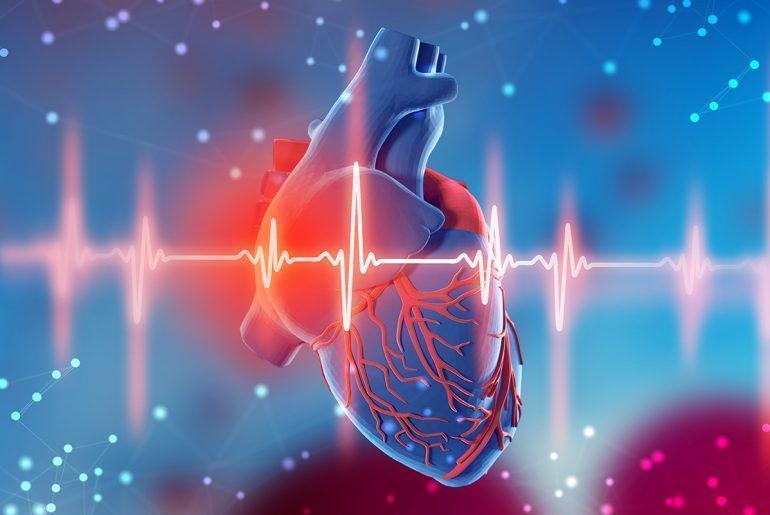What is Bs Cardiology Technology? Cardiology is a specialized branch of medicine that deals with the study and treatment of the heart and the cardiovascular system. In recent years, the demand for skilled professionals in this field has increased, leading to the development of numerous courses and programs. One such program is the BS Cardiology Technology course, which equips students with the knowledge and skills required to work in the field of cardiology.
BS Cardiology Technology:

BS Cardiology Technology is an undergraduate course that focuses on the study of the heart and its functions, along with the diagnosis and treatment of cardiovascular diseases. It is a four-year program that aims to provide students with a strong foundation in cardiology and related fields.
The course curriculum typically includes subjects such as anatomy, physiology, biochemistry, pharmacology, pathology, and cardiology. Students also receive training in the use of advanced medical equipment such as ECG machines, Holter monitors, and echocardiography machines.
Scope of Cardiology Technology:
The scope of cardiology technology is broad and covers various aspects of heart disease diagnosis and treatment. The advancements in technology have made it possible to detect heart diseases at an early stage, which was not possible earlier. With the help of modern technology, doctors can identify the underlying causes of heart diseases, such as cholesterol buildup, valve dysfunction, or arrhythmia, and provide appropriate treatment.
Cardiology technology has also made significant progress in the field of minimally invasive procedures. Minimally invasive procedures involve small incisions instead of large ones, resulting in less pain, shorter hospital stays, and faster recovery. For example, cardiac catheterization is a minimally invasive procedure that involves inserting a catheter into the heart through a small incision in the arm or leg. This procedure can be used to diagnose and treat various heart conditions, such as blockages in the heart’s blood vessels.
The benefits of cardiology technology are numerous. It has made it possible to diagnose and treat heart diseases more accurately and effectively. Patients can now receive treatment that is tailored to their specific needs, resulting in better outcomes. Cardiology technology has also reduced the need for invasive procedures, resulting in less pain, shorter hospital stays, and faster recovery.
Bs Cardiology Subjects:
The specific names of the subjects offered in a BSc Cardiology program may vary depending on the institution, but here are some common subjects that are typically included:
- Anatomy and Physiology
- Cardiovascular Pharmacology
- ECG Interpretation
- Clinical Cardiology
- Pathophysiology of Cardiovascular Diseases
- Cardiac Imaging
- Electrophysiology
- Cardiovascular Research Methodology
- Cardiac Rehabilitation
- Cardiovascular Emergencies
- Cardiac Surgery
- Epidemiology and Prevention of Cardiovascular Diseases
- Cardiovascular Physiology
- Cardiovascular Diagnostics
- Cardiovascular Nursing.
Career Opportunities after B.Sc in Cardiac Technology:

A degree in BS Cardiology Technology opens up numerous career opportunities in the healthcare industry. Graduates can work in hospitals, clinics, and diagnostic centers as cardiac technologists, where they assist physicians in the diagnosis and treatment of heart diseases. They can also work in research institutes, pharmaceutical companies, and medical equipment manufacturing companies.
Cardiac Technologist:
Cardiac technologists perform various diagnostic tests such as electrocardiograms (ECGs), stress tests, and echocardiograms to help physicians diagnose and treat heart diseases.
Cardiovascular Technologist:
Cardiovascular technologists assist physicians in invasive procedures such as cardiac catheterization and angioplasty.
Research Assistant:
Graduates can work as research assistants in various research institutes and assist in conducting studies related to cardiology and cardiovascular diseases.
Medical Equipment Sales Representative:
Graduates can work as sales representatives for medical equipment manufacturing companies, where they can use their knowledge of cardiology to sell specialized medical equipment.
Skills Required for B.Sc Cardiac Technology:
To excel in the field of cardiology, students pursuing a BS Cardiology Technology course should possess certain skills, such as:
Attention to detail:
Cardiology is a highly specialized field, and the diagnosis and treatment of cardiovascular diseases require a high level of attention to detail.
Technical skills:
Graduates should be proficient in the use of advanced medical equipment used in cardiology, such as ECG machines, Holter monitors, and echocardiography machines.
Communication skills:
Cardiac technologists and other professionals working in cardiology need to communicate effectively with patients, physicians, and other healthcare professionals.
Analytical skills:
Graduates should be able to analyze and interpret the results of diagnostic tests accurately.
FAQs:
How’s the admission process for B.Sc Cardiac Technology?
The admission process for B.Sc Cardiac Technology may vary depending on the institution or university offering the program. However, generally, the admission process involves the following steps:
Eligibility Criteria:
Candidates must ensure that they meet the eligibility criteria set by the institution. The eligibility criteria may include educational qualifications, minimum age limit, and other requirements.
Application Process:
Candidates have to apply for the B.Sc Cardiac Technology program by filling out an application form, which can be obtained either online or offline from the institution’s website or campus.
Entrance Exam:
Some institutions may conduct an entrance exam to shortlist candidates for admission. The entrance exam may be of objective or subjective type and may test the candidate’s knowledge in subjects like Physics, Chemistry, and Biology.
Counselling:
Shortlisted candidates may be called for counselling, which may include a personal interview, group discussion, or both. The purpose of counselling is to assess the candidate’s suitability for the program and to provide information about the program, curriculum, and career prospects.
Admission:
Finally, candidates who meet the admission criteria and are selected in the entrance exam and counselling are offered admission to the B.Sc Cardiac Technology program. Candidates have to complete the admission formalities by submitting the required documents and paying the admission fee.
It is advisable to check with the specific institution offering the B.Sc Cardiac Technology program for the exact admission process, eligibility criteria, and other requirements.
What are the criteria for BS Cardiology eligibility?
The criteria for BS Cardiology eligibility may vary depending on the specific university or institution offering the program. However, in general, here are some common requirements for BS Cardiology programs:
Educational Qualifications:
The candidate must have completed 10+2 (or equivalent) education with Physics, Chemistry, and Biology as compulsory subjects. Some universities may also require a minimum percentage in these subjects.
Age Limit:
The candidate should have attained the age of 17 years on or before the specified date of the year of admission.
Entrance Exam:
Many universities require the candidate to appear for an entrance exam, which may include questions related to Physics, Chemistry, and Biology.
Medical Fitness:
The candidate must be medically fit and free from any contagious diseases.
Work Experience:
Some universities may require candidates to have relevant work experience in the medical field.
Language Proficiency:
Some universities may require candidates to demonstrate proficiency in English or other languages, depending on the medium of instruction.
It’s important to note that these criteria may vary from institution to institution, so it’s always best to check with the specific university offering the program to confirm their requirements.
What’s the salary of a BS Cardiology Technologist?
The salary of a BS Cardiology Technologist can vary depending on various factors such as location, years of experience, and type of employer. However, according to the Bureau of Labor Statistics (BLS) in the United States, the median annual wage for cardiovascular technologists and technicians, including those with a BS in Cardiology Technology, was $59,410 as of May 2020. The lowest 10 percent earned less than $29,340, and the highest 10 percent earned more than $102,240. It’s important to note that salaries can vary significantly based on the geographic location, type of healthcare facility, and demand for skilled professionals in the area.
What are the key benefits of studying B.Sc Cardiac Technology?
Studying B.Sc Cardiac Technology can offer several benefits, including:
In-Demand Field:
With the increasing prevalence of heart diseases, there is a growing demand for cardiac technologists who can assist in the diagnosis and treatment of heart conditions. As a result, a degree in cardiac technology can offer good job prospects.
Hands-on Training:
A B.Sc in Cardiac Technology provides hands-on training in conducting various cardiac tests and procedures. Students learn how to use specialized equipment, such as ECG machines, echocardiography machines, and stress test equipment.
Career Advancement:
After completing a B.Sc in Cardiac Technology, graduates can pursue further studies, such as an M.Sc or Ph.D. This can lead to higher-paying jobs in research, academia, or management.
Competitive Salary:
Cardiac technologists typically earn a competitive salary, and the job market for them is expected to grow in the coming years. This means that graduates can expect to earn a good salary, with opportunities for growth and advancement.
Contribution to Healthcare:
Cardiac technologists play a critical role in the healthcare system, helping to diagnose and treat heart conditions. Graduates can take pride in knowing that their work is making a difference in the lives of patients.
How to become a cardiologist?
Cardiologists are medical doctors who specialize in diagnosing and treating heart-related diseases and conditions. As such, their training and education focuses heavily on medical and biological sciences.
To become a cardiologist, one must first complete an undergraduate degree in a pre-medical field, such as biology or biochemistry. After that, they must attend medical school and complete a residency in internal medicine, followed by a fellowship in cardiology.
Therefore, the subjects that would be most relevant for a cardiologist would be those that cover the medical and biological sciences, such as anatomy, physiology, biochemistry, pharmacology, and pathology. Additionally, courses in statistics, research methods, and medical ethics would also be beneficial for aspiring cardiologists.
Wrapping up:
In conclusion, BS Cardiology Technology is an excellent course for students who are passionate about cardiology and wish to pursue a career in this field. The course equips students with the knowledge and skills required to work in various healthcare settings and provides numerous career opportunities. With the increasing prevalence of cardiovascular diseases worldwide, the demand for skilled professionals in this field is only expected to grow, making BS Cardiology Technology a promising career choice.






